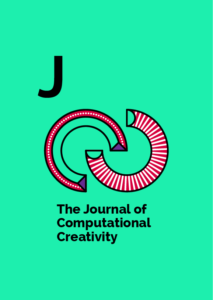Journals
The Journal of Computational Creativity seeks to promote excellent scientific research and engineering of computational creative systems, as well as scholarly discussion of the philosophy surrounding such systems, independent of application.
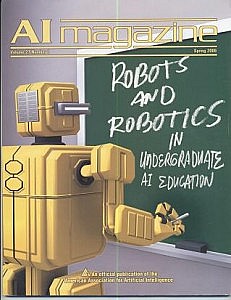
AI Magazine
published by Association for the Advancement of Artificial Intelligence (AAAI)
ISSN 0738-4602
Special Issue: Computational Creativity: Coming of Age, Volume 30, Issue 3, Fall 2009
The purpose of AI Magazine is to disseminate timely and informative articles that represent the current state of the art in AI and to keep its readers posted on AAAI-related matters. The articles are selected for appeal to readers engaged in research and applications across the broad spectrum of AI. Although a moderate level of technical understanding is assumed by the authors, articles should be clear enough to inform readers who work outside the particular subject area.
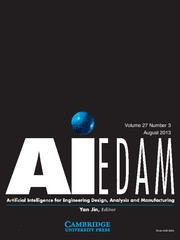
AI EDAM (Artificial Intelligence for Engineering Design, Analysis and Manufacturing)
published by Cambridge University Press
ISSN 0890-0604 (Print) 1469-1760 (Online)
Special Issue: Computational Creativity, Volume 27, Issue 4, December 2013 (forthcoming)
The journal publishes original articles about significant AI theory and applications based on the most up-to-date research in all branches and phases of engineering. Suitable topics include: analysis and evaluation; selection; configuration and design; manufacturing and assembly; and concurrent engineering. Specifically, the journal is interested in the use of AI in planning, design, analysis, simulation, qualitative reasoning, spatial reasoning and graphics, manufacturing, assembly, process planning, scheduling, numerical analysis, optimization, distributed systems, multi-agent applications, cooperation, cognitive modeling, learning and creativity. AI EDAM is also interested in original, major applications of state-of-the-art knowledge-based techniques to important engineering problems.
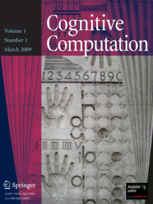
Cognitive Computation
published by Springer
ISSN 1866-9956 (Print) 1866-9964 (Online)
Special Issue: Computational Creativity, Intelligence and Autonomy, Volume 4, Issue 3, September 2012
Cognitive Computation is an international, peer-reviewed, interdisciplinary journal that publishes cutting-edge articles describing original basic and applied work involving bio-inspired computational accounts of all aspects of natural and artificial cognitive systems. It provides a new platform for the dissemination of research, current practices and future trends in the emerging discipline of cognitive computation that bridges gap between life sciences, social sciences, engineering, physical and mathematical sciences, and humanities.
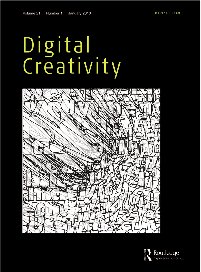
Digital Creativity
published by Taylor & Francis
ISSN 1462-6268 (Print) 1744-3806 (Online)
Digital Creativity is a major peer-reviewed journal at the intersection of the creative arts and digital technologies. It publishes articles of interest to those involved in the practical task and theoretical aspects of making or using digital media in creative contexts.
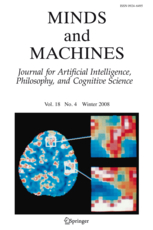
Minds and Machines
published by Springer
ISSN 0924-6495 (Print) 1572-8641 (Online)
Special Issue: Computational Creativity, Volume 20, Number 4, November 2010
Affiliated with the Society for Machines and Mentality, the journal Minds and Machines fosters a tradition of criticism within the AI and philosophical communities on problems and issues of common concern. Its scope explicitly encompasses philosophical aspects of computer science. The journal affords an international forum for the discussion and debate of important and controversial issues concerning significant developments within its areas of editorial focus. It features special issues devoted to specific topics, critical responses to previously published pieces, and review essays discussing current problem situations.
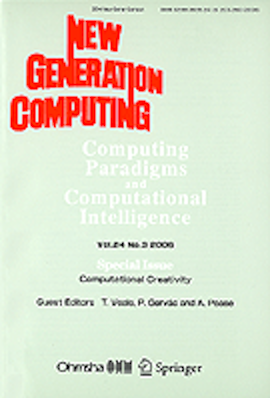
New Generation Computing
published by Ohmsha, Ltd and Springer Japan
ISSN: 0288-3635 (Print) 1882-7055 (Online)
Special Issue: Computational Creativity, Volume 24, Issue 3, May 2006
This journal supports the development of new computational paradigms stemming from the cross-fertilization of various research fields, such as programming (logic, constraint, functional, object-oriented), distributed/parallel computing, knowledge-based systems and agent-oriented systems. It presents theoretical and practical papers that cover all types of learning, knowledge discovery, evolutionary mechanisms, and emergent systems that can lead to key technologies that enable the building of more complex and intelligent systems.



